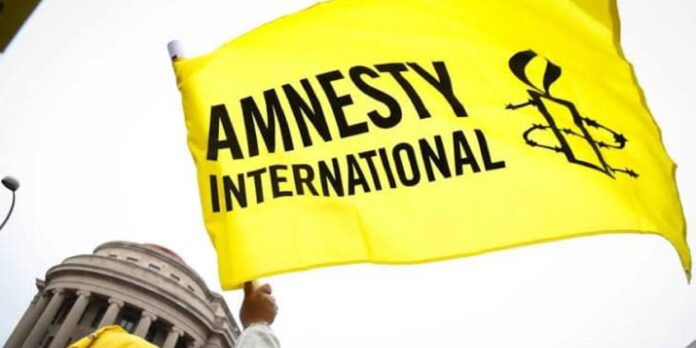A civic group, the Northwest Democracy Monitoring Group (NDMG), has strongly criticised Amnesty International’s recent report on Nigeria, describing it as false, exaggerated, and capable of inciting division in the country.
In a statement issued by its Chairman, Abubakar Sani, the group accused Amnesty International of releasing a “mischievous and grossly misleading” report that does not reflect the true situation on the ground. The NDMG said the data presented by the human rights organisation were not only inflated but also lacked credible evidence.
“We categorically challenge the numbers cited in this report, deeming them grossly inflated, misleading, and ultimately inflammatory,” Sani said.
The report, which has drawn public attention, allegedly presents figures on violence, human rights abuses, and governance issues in Nigeria. But the NDMG believes the document is poorly researched and aimed at painting a negative picture of the country, especially at a time when the nation is making efforts to strengthen democratic institutions.
According to Sani, NDMG has been working closely with communities across the Northwest region of Nigeria to gather data and monitor democratic processes. He said the group’s findings are far from what Amnesty International published.
“Our findings starkly contrast with the inflated figures presented by Amnesty, which appear to be designed not to inform but to incite unrest and division within our society,” the group stated.
He added that while Nigeria indeed faces serious security and governance challenges, the situation is complex and must be handled with care, accuracy, and understanding. He faulted Amnesty for allegedly oversimplifying these challenges with dramatic statistics that could worsen tensions in the country.
The NDMG urged Amnesty International to work more closely with local organisations and Nigerian stakeholders to better understand the country’s problems, instead of relying on what it described as “sensationalized data that fosters distrust and fear.”
“The context in which these figures are presented is equally important. The situation in Nigeria is complex, influenced by a myriad of socio-political factors,” Sani said.
He questioned the timing of the report’s release, suggesting that it may be part of a wider agenda aimed at destabilising Nigeria. “At a time when Nigeria is working diligently to address its challenges through dialogue and democratic processes, the dissemination of misleading information serves only to undermine these efforts,” he said.
Sani did not stop at criticism alone. He went further to ask Amnesty International to “leave Nigeria alone” and focus its attention elsewhere. He said what Nigeria needs now is support, not interference that causes more harm than good.
“We believe that such actions are not merely misguided but are indicative of a broader agenda that seeks to destabilize our nation,” he said. “Our nation is not in need of external interference that exacerbates tensions; rather, we require support that acknowledges our sovereignty and respects our ongoing journey toward democratic consolidation.”
The NDMG emphasised its commitment to transparency, accountability, and the strengthening of democratic values in Nigeria. The group said it would continue to monitor developments and stand as a voice for truth in the country’s political space.
In its closing remarks, the group called on Amnesty International and similar foreign organisations to exercise greater caution and responsibility in reporting on Nigeria. It warned that inaccurate or exaggerated reports can worsen an already fragile situation and mislead the international community.
Sani noted, “We implore Amnesty International to reflect on the potential consequences of its actions and to reconsider the impact of its reporting on the ground.”
He urged international groups to play constructive roles by encouraging unity, peace, and development in Nigeria instead of fueling division with unverified claims.
Amnesty International, a global human rights organisation, has over the years issued reports on Nigeria covering issues such as security, police brutality, and government accountability. While some Nigerians and civil society organisations support Amnesty’s work, others, including government officials, have often accused the group of bias and spreading one-sided narratives.
The recent pushback from the NDMG adds to the growing criticism that some international reports do not reflect the real efforts being made locally to resolve the country’s issues.

